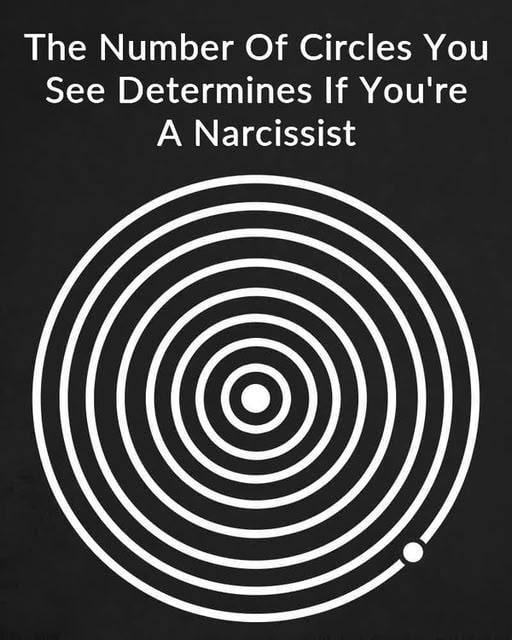How a Simple Circle Test Claims to Expose Narcissism—But What’s Really Going On?

In the age of quick content and viral trends, people are hungry for instant self-insight. Enter the “How many circles do you see?” test—a meme that promises to reveal deep personality traits, including whether you might be a narcissist, in just a few seconds. Its appeal is obvious: no long forms, no deep introspection—just count and click.
Compared to formal psychological assessments, these viral quizzes are playful, easy, and instantly gratifying. But behind the fun lies something deeper: our obsession with understanding ourselves and how others see us.
Why We Fall for It
So, why do people take these tests seriously? Psychologists point to the Barnum effect—our tendency to accept vague or general statements as uniquely true for us. A meme saying, “If you see 4 circles, you’re confident and independent!” feeds into our desire for identity, validation, and belonging. It feels personal, even if it’s not.
Add in the social element—sharing results, tagging friends, debating outcomes—and you’ve got a formula that spreads like wildfire. The more it’s shared, the more legitimate it seems, even if the science is missing.
The Narcissism Meme Problem
While some online quizzes are harmless fun, others—like the so-called narcissism circle test—can blur the lines between entertainment and misinformation. Narcissism isn’t just about being a little self-absorbed. It’s a complex psychological condition involving traits like grandiosity, a need for admiration, and a lack of empathy—none of which can be measured by how many shapes you spot in an image.
Still, bold claims like “This illusion reveals your darkest trait” grab attention. But they also risk spreading false ideas about mental health, encouraging people to mislabel themselves—or others.
How Social Media Fuels the Fire
Platforms like TikTok and Instagram thrive on engagement, and few things engage more than personality quizzes. One click leads to another, and soon your feed is full of color tests, emoji tests, and yes, more circles. Algorithms love these loops, keeping us scrolling, clicking, and sharing.
The danger? The more exposure we get to pseudo-psychology, the more we may start trusting it over real, research-based methods.
What We’re Really Looking For
At the heart of it, these tests speak to something very human: the need to understand ourselves. We don’t just want labels—we want stories that explain our behaviors, struggles, and strengths. And while circle memes and color illusions can be entertaining, they’re no substitute for genuine tools like therapy or the Big Five personality test.
So, go ahead—take the silly quiz, laugh with your friends, enjoy the moment. But remember: self-discovery is deeper than a viral meme. And when it comes to understanding your mind, science will always beat a swipe.